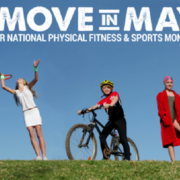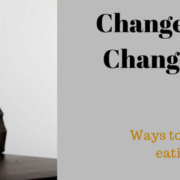No Time, No Problem
While we continue this month’s focus on nutrition, this week’s theme is exercise. Similarly to breakfast, one of the common associations with exercising is time…or lack thereof. Something we either hear, or even say to ourselves is, “I just don’t have the time to exercise.”
In hindsight that may seem like the case, but in reality, it’s imperative to schedule a little time for physical activity. Exercising is one of the most important things you can do to keep up your health, and today we’ll not only discuss how it’s beneficial, but also how you can engage, even with time constraints.
Our friends over at the CDC wrote an article highlighting the benefits of physical activity. Of the vast mentioned, we’re going to emphasize the following:
- Reduces your risk of cardiovascular disease(s)
- Cardiovascular diseases are the leading cause of death, however, moderate intense activity (less than150 minutes per week), lowers the risk drastically, while lowering your blood pressure and improving cholesterol levels.
- Strengthens your bones and muscles
- It’s important to protect your bones/joints/muscles, but especially as you get older. Moderate intense activity can help slow the loss of bone density as you age, and helps with arthritis and/or other major health conditions (e.g. hip fracture)
- Controls your weight
Though these benefits may be more commonly known, we’ve entrusted U.S. News to share with us some astonishing facts about exercising that may not be privy to everyone. The few we focused on are the following:
- Exercising can reverse the detrimental effects of stress
- Physical activity can not only increase levels of soothing brain chemicals that relieve you of triggering stressful thoughts, but can also slow down the aging of the cells in your body
- It lifts depression
- Exercising can stimulate the growth of neurons in the regions of your brain affected by depression, thereby acting as a natural antidepressant.
- Helps with learning
- Vigorous activities aid in creating new brain cells and connections, while improving the capacity to learn and retain information – which enhances both attention and concentration skills
Aware of the benefits of exercising, yet still limited by the obstacle of time? Luckily, the American Heart Association (AHA) provides great tips on making use of your time to exercise. The AHA believes you can get heart-healthy benefits of exercise if you divide your time into two or three, 15 minute segments doing some of the following:
- Add more walking
- Walking the dog
- Brisk walks with your children
- Walks through a mall while you window-shop!
- Parking further away and walking towards destination
- Take the stairs
- Skip out on the elevators and power through sets of stairs
- TV fitness
- Turn TV into a mini gym session. Walk on the treadmill while streaming your favorite show, or even do quick exercises in between commercial breaks.
- Join a team
- Maybe it’s bowling, maybe it’s yoga, but find an activity you like that keeps you active and motivated!
These are just a few ways you can squeeze in some exercise even with a busy schedule. And if you are able to make it to a gym once or twice, make the most of your time. More activity, less rest. A 30 minute workout is just as good as a two hour session.
For more exercising tips that are right for you, feel free to contact your R-Health doctor, and follow us for more posts on optimum nutrition!













Leave a Reply
Want to join the discussion?Feel free to contribute!